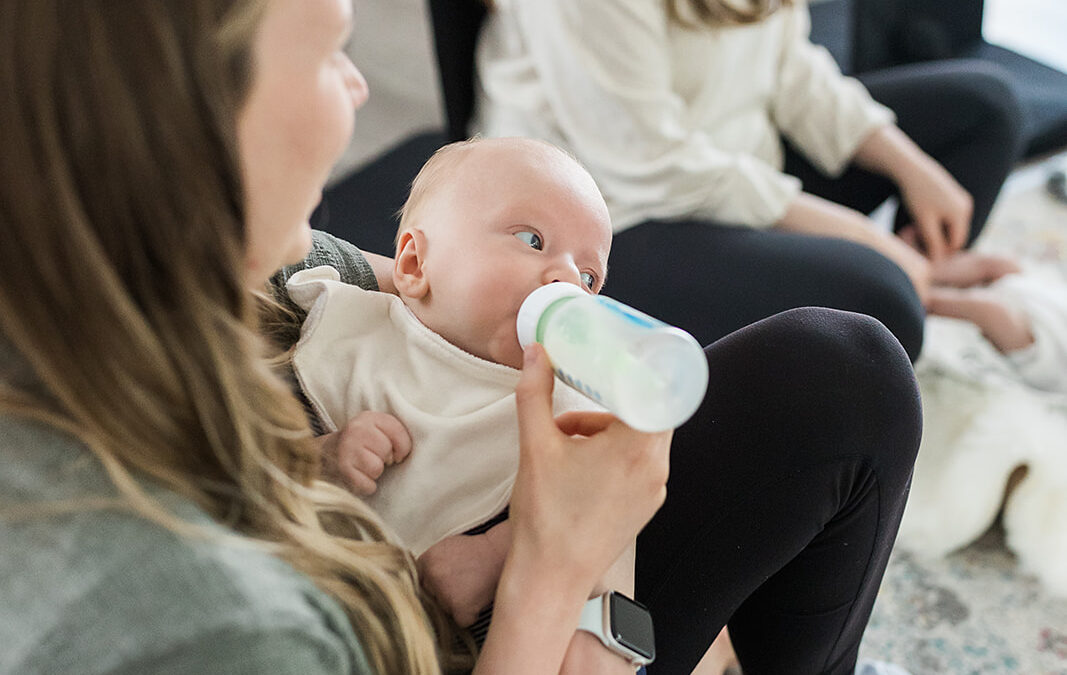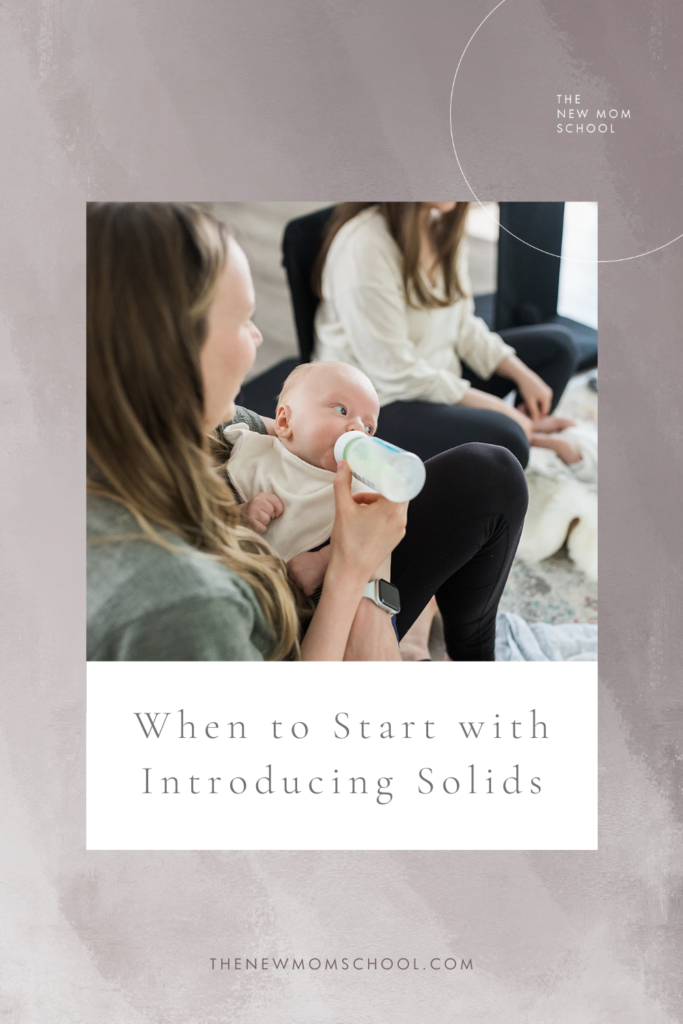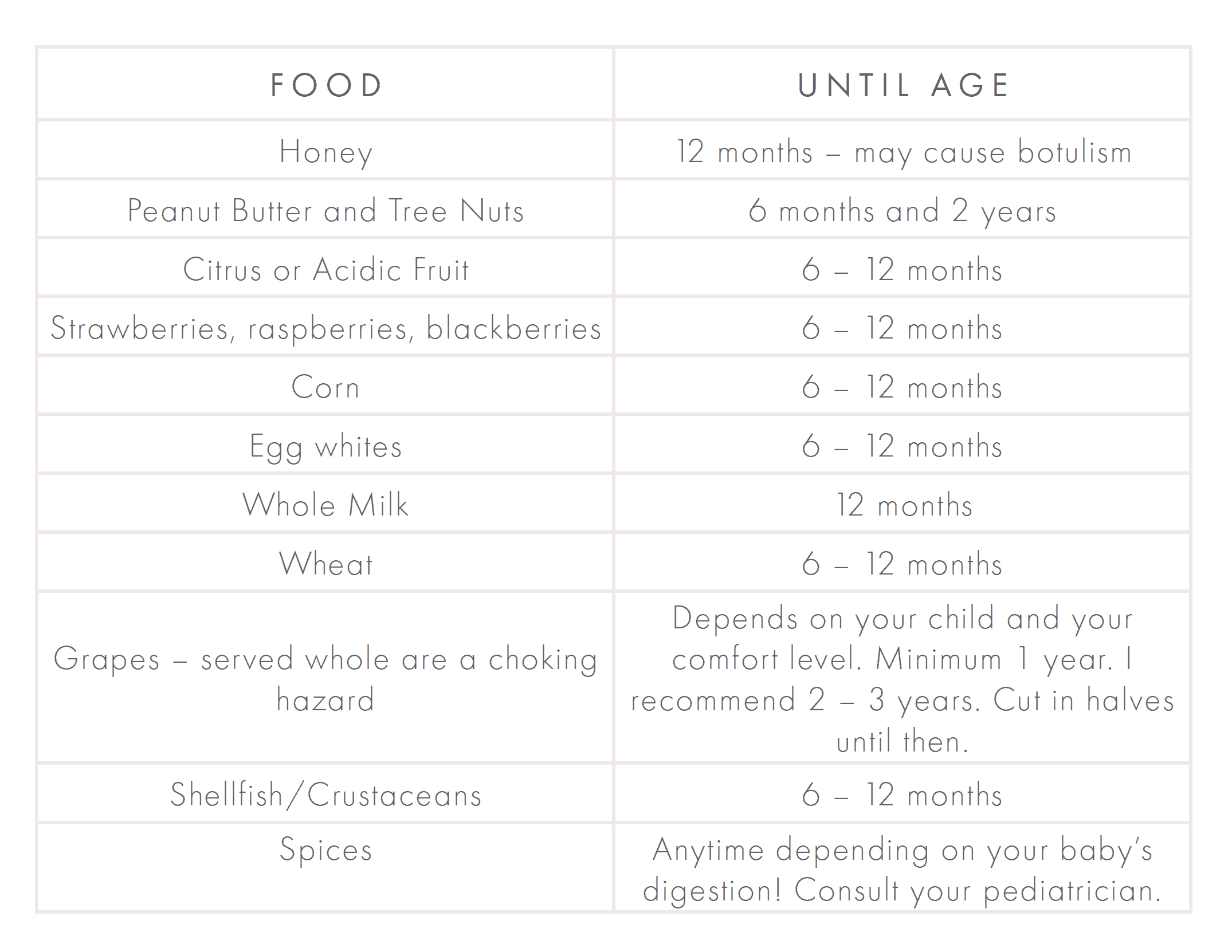Here are some important things to remember as you approach this phase.
+ All babies are different. Some will love to eat anything and everything, others will be slow to welcome this new milestone.
+ Eating solids (like most things) is temperament and development based so follow your baby’s lead.
+ You might be set on Baby Led Weaning (skipping purees and going straight to finger foods) and your baby will only eat purees and vice versa.
+ There is no RIGHT way to feed your baby. Do what feels best for you and what works best for your family.
+ You don’t need to feed your baby 100% of any way. If you make some homemade food you can also use some food in a jar or squeeze pouches, if needed. Store-bought food can be very convenient while on-the-go.
There are many ways to begin introducing solid foods but your baby will ultimately be the one to determine how, what and how much they want to eat.
However you choose to feed your baby, there are certain milestones they need to reach prior to being ready to consume solid foods. Breastmilk or formula must remain their primary source of nutrition for the first year of life and solid foods are complementary.
Babies are typically ready to begin solid foods between 4 and 6 months of age, depending on their development.
Here are 5 key skills we look for them to master before introducing solids.
- Hold Head Up. Most babies aren’t showing signs of being able to hold their head up high for longer periods of time until the age of 3 or 4 months.
- Sitting (Mostly) Unassisted. Babies typically start sitting between 5 and 6 months. High chairs typically come with a recline feature for those who are mostly doing so on their own but might need a little additional support.
- Birth Weight Has Doubled. Typically, babies are big enough to begin solid foods when they are at least double their birth weight and a minimum of 13 pounds.
- Interested in Food. If your baby starts tracking your food from plate to mouth and opens their mouth while watching you eat, they are usually ready to start eating solid food.
- Swallow Food from Spoon. If when you feed your baby from a spoon and they are able to swallow it instead of push it out of their mouth and dribble it down their chin, you can continue to move forward with feeding your baby solid foods.
So where do you begin?
- Once your baby has mastered the skills above, let the fun begin!
- Always begin with a single ingredient.
- Give your baby a spoon to hold while you feed them with a second spoon.
- Begin with one tablespoon of whatever food you have decided will be their first. Begin in the morning about an hour after their first feeding of breastmilk or formula. You want to start in the morning so you can watch your baby to make sure there are no allergic reactions throughout the day.
- Continue to give your baby that same first food (and all new foods as you introduce them) for three consecutive days to make sure no allergic reactions occur.
- Once you know your baby is not allergic to a food, you can start to mix already introduced foods with new foods to add more flavor and diversity to your baby’s meals.
- Vegetables are more nutrient-dense, however, it is not mandatory to introduce them prior to fruit, although many will advise this order to avoid baby preferring sweeter tastes. If your baby becomes the toddler like most other toddlers, they will prefer sweeter tastes anyway!
- Use organic fruits and vegetables as often as possible. We want to expose our babies to as few chemicals as possible.
- Let them get messy!
Some good first foods to try:
+ Avocado
+ Sweet Potato
+ Banana
+ Acorn or Butternut Squash
+ Pears
+ Brown Rice Cereal
And just a note about rice cereal. While rice cereal has been known to be a common first food, it is not mandatory to use it as a first food. There are many great fruits and vegetables that offer great vitamins and minerals that can be used as your baby’s first food.
And some foods to be cautious of:
- Our Infant Class (3-6 months) covers the introduction of solid foods. You can pre-register for this class now.
- We are hosting a single day, in-person Picky Eaters Workshop on Saturday, May 15 from 11am – 1pm. The class will be hosted by our wonderful Pediatric OT, Liz Koren of Pure Pediatrics, who is another fantastic resource to explore.



